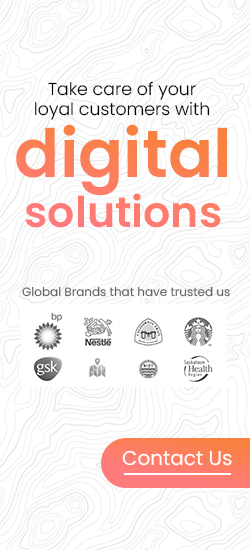TABLE OF CONTENT
Key Takeaways
Monetize data to transform it into diversified income streams, providing financial stability and resilience
Data monetization fosters innovation, driving the development of new products and services to meet market demands and enhance industry leadership
Gain a distinct advantage in the competitive market by leveraging data strategically, adapting to industry shifts, and staying resilient
Identify valuable data, ensure quality and compliance, choose the right strategy, invest in security and infrastructure, and continually measure and optimize performance for sustained data monetization success.
Data has become a valuable asset, and many organizations are exploring ways to monetize the data they collect. Data monetization involves turning raw data into revenue, and when done strategically, it can be a powerful driver of business success. In this guide, we'll look into the key steps and strategies for achieving data monetization success.
What is Data Monetization?
Data monetization is the strategic process of converting raw data into economic value for businesses. This can be achieved through various means, including selling raw data, offering data analytics services, or creating data-driven products. The potential benefits are vast, ranging from increased revenue streams to gaining a competitive edge in the market.
Why should you Monetize your Data?
Monetizing your data offers several advantages for your business such as:
Diversified Revenue Streams:
Monetizing your data transforms it from a passive asset into a lucrative income source, providing businesses with diversified revenue streams.
Financial Stability:
Extracting value from data helps offset costs and enhances financial stability, contributing to a more robust and resilient business model.
Encourages Innovation:
Data monetization fosters innovation by prompting the development of new products and services that meet market demands and propel the business forward.
Industry Leadership:
Leveraging data strategically positions a business as an industry leader, demonstrating adaptability and forward-thinking in a competitive landscape.
Enhanced Customer Experiences:
Data-driven insights enable businesses to tailor offerings, enhance customer experiences, fostering loyalty, and increasing engagement.
Competitive Edge:
In the competitive market, data monetization provides a distinct edge, allowing businesses to adapt, grow, and stay resilient amid industry shifts.
How to get started for Data Monetization?
Go through all the steps that we have put together to help your business get started with data monetization.
Identify Valuable Data Assets
The first step in successful data monetization is identifying and understanding your valuable data assets. Not all data is created equal, and organizations must pinpoint the datasets that hold the most potential for generating value. This could include customer behavior data, market trends, or operational insights. Conduct a thorough audit of your data assets to determine their relevance and potential market demand.
Ensure Data Quality and Compliance
Data quality and compliance are non-negotiable when it comes to data monetization. Poor-quality data can lead to inaccurate insights and erode trust with clients or partners. Ensure that your data is accurate, up-to-date, and complies with relevant regulations such as GDPR or HIPAA. Investing in data governance practices will not only enhance the value of your data but also build a foundation for long-term success.
Choose the Right Monetization Strategy
There are various ways to monetize data, and the optimal strategy depends on your organization's goals and resources. Some common data monetization strategies include:
Selling Raw Data:
Selling raw data is a direct path to monetization. By providing external parties with access to your datasets, you unlock revenue streams. However, this strategy demands caution. Strict measures for data privacy and security are essential to instill confidence, ensuring compliance with regulations and safeguarding sensitive information. Balancing profitability with ethical data practices is crucial for sustained success.
Data Analytics as a Service (DAaaS):
The surge in demand for data analytics services presents a lucrative opportunity. Offering DAaaS involves providing clients with valuable insights, reports, and recommendations derived from your data expertise. This not only positions your organization as a data authority but also establishes a consistent revenue stream as businesses increasingly seek data-driven decision-making support.
Creating Data-Driven Products:
Innovation lies in creating products or applications that make use of your data. For instance, a weather data provider can develop a mobile app offering real-time weather forecasts, meeting consumer demands for instant, accurate information. This strategy transforms data into tangible, marketable assets, opening avenues for diversified revenue and establishing a direct connection with end-users.
Collaborating with Partners:
Collaboration amplifies the impact of data monetization. By partnering with other organizations, you can create synergies that lead to joint data monetization efforts. This may involve sharing datasets, combining data assets, or co-developing innovative solutions. Collaborative data strategies not only broaden your market presence but also foster mutually beneficial relationships, creating a win-win scenario for all parties involved.
Invest in Data Security
Security is paramount when dealing with data, especially when monetizing it. Implement robust cybersecurity measures to protect sensitive information and build trust with clients. A data breach not only poses a financial risk but can also damage your reputation, which won’t be repairable in the future.
Build a Scalable Infrastructure
As your data monetization efforts grow, it's essential to have a scalable infrastructure in place. This includes both technological and organizational aspects. Invest in data storage and processing capabilities that can handle increasing volumes of data, and ensure that your team has the necessary skills to manage and analyze this data effectively.
Measuring and Optimizing Performance
To ensure ongoing success, establish key performance indicators (KPIs) to measure the effectiveness of your data monetization efforts. Track metrics such as revenue generated, customer satisfaction, and the impact on overall business objectives. Use these insights to continually optimize your strategies and adapt to evolving market trends.
Wrapping Up
Data monetization presents significant opportunities for organizations willing to harness the power of their data. By identifying valuable data assets, ensuring data quality and compliance, choosing the right monetization strategy, investing in security and infrastructure, and continuously measuring and optimizing performance, you can pave the way for long-term success in the data-driven economy. Remember, successful data monetization is not just about making money today but building a sustainable and resilient data strategy for the future.
If you are venturing into data monetization but are unsure of where to begin, consider collaborating with W2S Solutions, a prominent data engineering services provider. We have played a key role in facilitating numerous businesses on their journey towards successful data monetization. Our expertise lies in implementing data monetization strategies customized to our client's unique needs, propelling their businesses to unprecedented heights.


